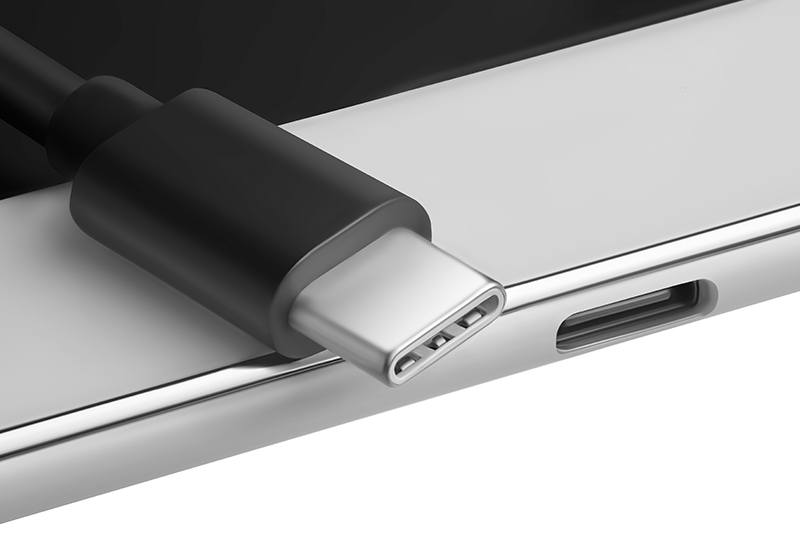How Much to Fix a Laptop Charger Port
We all have many different chargers lying around the house. Often, we forget which charger was compatible with which device. Recently, USB-C chargers are becoming increasingly widespread across multiple devices, both smartphones and laptops. Thus, most people are starting to wonder the following: is it actually safe to use a (USB-C) laptop charger to charge a phone?
Here at Charger Universe, we wanted to clarify the answer to this important question by sharing as much information as possible. Here we go.
The short answer
With the recent increase in popularity of certain standards (USB-C and USB-PD), the short answer is increasingly becoming the following: in general, yes, it is safe to plug your laptop charger into your phone.
However, and as our most observant readers will have noticed, we are using the expression "in general" here. This is because, ultimately, it will always depend on which laptop charger and which phone you're using. Read on for the complete details.
The technology enabling charger compatibility
In order to have successful charger compatibility (that is, the possibility of using a device's charger for another device), two conditions must be satisfied. These are having a common physical conection and using the same charging protocol.
Physical connection
In 2014, the USB-C connector was formally announced by the USB Implementer's Forum (USB-IF), a non-profit organization which brings together industry-leading companies such as Apple, Microsoft and Intel.
The USB-C (also called USB Type-C) was conceived with the idea of creating a unique universal standard which would solve several problems with older USB designs. Fully reversible, the USB-C would be small enough to fit in smartphones, but robust enough to power laptops.

Fast forward to 2020, the USB-C has become the new stadard in all sorts of devices. Most new Android phones are powered by USB-C ports. Apple has been including it in their Macbook Pro since their 2015 model. The iPad now ships with a USB-C port, which, by the way, also shares specification with the modern Thunderbolt 3. Even the EU is now taking steps to ensure that USB-C becomes compulsory in all smartphones.
Charging protocol
But having a USB-C connector does not automatically make everything compatible with everything. The USB-C connector is simply the physical interface that gets plugged in to the device. In order to have a successful charge, the devices must also have a compatible charging protocol.
Luckily, if your laptop has a USB-C connector, then it is also very likely that it will support USB Power Delivery (USB-PD). This is the most common protocol nowadays, which allows up to 20V/5A (100W) output in laptops. It is also the protocol behind the fast charging technologies recently deployed by Apple and Google, in their iPhone and Pixel phones, respectively.
Nowadays, all modern batteries have a built-in charge controller that regulates the input voltage and prevents overcharging. This works in conjunction with the fact that most chargers also support different levels of output voltage. In practice, this means that, when you plug a charger into a device, the charger itself and the device have a sort of "conversation", where the phone "tells" the charger how much input voltage and current it can handle. The charger then suplies that power at the agreed voltage and current.
Precisely because of this negotiation, this means that even if your phone does not support fast charging, it will still work with your USB-C laptop charger, since the charger will simply default to the standard rate of 5V/1A.
The importance of using a genuine charger
There is, however, a catch here. All of the above assumes that your laptop's USB-C charger is able to successfully negotiate down the power required by your phone. While this is a very basic specification for almost any power supply, the truth is that there is still a small minority of "fake" USB-C chargers which do not comply with the specifications dictated by the USB-IF.
It is unlikely that you will ever encounter one, particularly now that retailers such as Amazon have completely banned them from their platforms. However, it is still relevant to stress the importance of using a genuine charger, above all.
What if my laptop charger is different from USB-C?
Many laptops use a different and often propietary physical connector different from USB-C. There is nothing wrong with this approach. However, as of 2020, there is no other connector widely being used to power laptops and also smartphones. This means that, even if you wanted, you would not be able to plug your laptop charger into your phone, simply because it would not fit!
Still, if you strongly believe that your laptop's charger can also fit your phone, chances are that what you have is actually a USB-C charger. In which case, read above.
Matthttps://chargeruniverse.com
Hey, I'm Matt, and I'm a student currently completing my masters in Electrical & Electronics Engineering. In my spare time, I like writing about chargers, electronics, and all gadgets related, here in Charger Universe. All opinions and views expressed in my blog posts are mine, unless explicitly stated otherwise.
How Much to Fix a Laptop Charger Port
Source: https://chargeruniverse.com/use-laptop-charger-to-charge-phone/